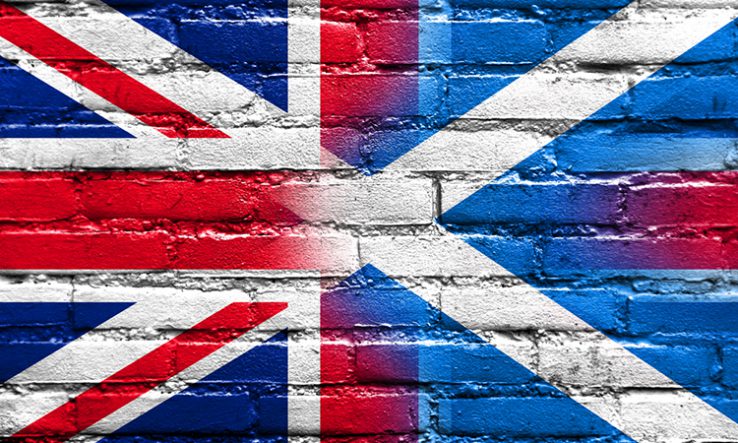
SNP warns general election result is driving case of independence, in research and more broadly
Scotland’s research sector is being forced into choosing between the United Kingdom and the European Union, the Scottish National Party’s education spokeswoman has warned.
The party strengthened its grip on the nation in last week’s general election, winning 48 out of 59 seats. But its MPs remain powerless to prevent Scotland being taken out of the EU in as little as a few weeks’ time.
Carol Monaghan, SNP education spokesperson and MP for Glasgow North West, told Research Professional News that the Conservative election victory is “extremely bad news” for research across the UK, with Brexit set to harm future collaboration.
“I’ve got no confidence that there’s not going to be serious damage to the science base in the UK,” she said.
The government’s plan to leave the European Union by the end of January and the polarisation of positions on Brexit between Scotland and the rest of the UK is fuelling demands for Scottish independence, she said.
“We can’t be shackled to Brexit Britain that’s willing to throw itself under this bus. For us it’s all about opportunity,” she said.
“We now need to look after ourselves and put in place measures that will ensure that we’ve got the choice over our own future in terms of another independence referendum and ultimately rejoining the European Union as an independent nation.”
Monaghan says the Westminster government has yet to make a proper and meaningful commitment to participating in EU R&D programmes.
“We have certainty that an express train is coming down the tracks and it’s going to hit us…I don’t think there’s anyone involved in research across the UK that’s looking at the result or hearing we are going to get Brexit done and thinking this is a positive step forward.”
Immigration and funding fears
The SNP is opposed to the minimum salary threshold proposed by the government that would stop many scientists and technicians from being able to come to the UK, and is demanding that immigration powers be devolved.
Richard Lochhead, the Scottish government’s science minister, warned: “The UK government’s ‘hostile environment’ immigration policies are deeply damaging to Scotland, and any Brexit will only exacerbate this.”
He added: “It is increasingly clear that the UK government will not deliver effective immigration policies that reflect Scotland’s values, circumstances or interests. Therefore, it is time for Scotland to have the powers to deliver tailored immigration solutions that meet Scotland’s needs and aspirations.”
In his first speech after being elected prime minister last week, Johnson pledged “colossal new investments” in science—in an echo of his promise last month to spend £18 billion on R&D by 2024-25.
But Monaghan, a member of the House of Commons Science and Technology Committee during the last government, said: “I don’t trust a word that comes out of his mouth” and accused Johnson of offering “jam tomorrow” in making promises he does not intend to keep.
The election result “is absolutely solid confirmation that the people of Scotland are rejecting Brexit”, she said.
The outcome means people “now need to choose between the unions and frankly it’s not the United Kingdom that is winning, their choice is the European Union”.
“We have had many discussions over the last few years with people working in science and research in Scotland and the shift towards considering the possibility of an independent Scotland has been quite monumental.”